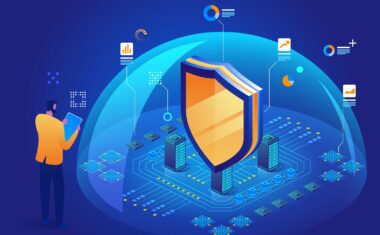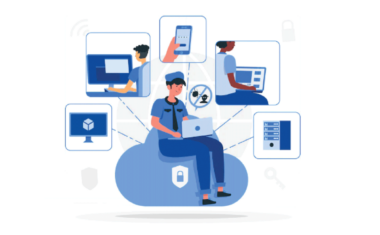6 Best Cybersecurity Courses for Beginners [2023 Guide]
![6 Best Cybersecurity Courses for Beginners [2022 Guide]](png/cybersecurity-bootcamp-800x496.png)
In this article
It might be a bit of an understatement to say that cybersecurity is a constantly evolving field. Cybersecurity professionals have to stay abreast of new developments constantly, and it’s one of the few jobs that’s practically guaranteed to never get dull.
But if you’re looking to launch a career in this exciting (and lucrative) field, then it can be hard to know where to start. That’s why we’ve created this guide. Below, we’ve listed the six best cybersecurity courses for beginners, where you’ll learn the basics that you need to enter the field.
Ready? Then let’s get started.
What Is a Cybersecurity Course?
A cybersecurity course covers IT concepts like operating systems, malware analysis, network security, ethical hacking, and other specializations. While universities and colleges offer classes that touch upon these concepts, a cybersecurity course is solely dedicated to cybersecurity. These specialized cybersecurity courses provide students with niche fundamental knowledge and hands-on experience. This knowledge becomes the foundation for coveted cybersecurity job responsibilities. These include security engineering, penetration testing, security architecture, and security and risk management.
Best Cybersecurity Courses for Beginners
| Company | Course/Bootcamp | Rank | Price | Details |
|---|---|---|---|---|
 |
Cybersecurity Career Track | 4.65 | $11,340 | Learn More |
 |
Complete Cyber Security Course | 4.61 | $38 | Learn More |
 |
Introduction to Cyber Security | 4.5 | $189.99 | Learn More |
 |
IBM Cybersecurity Analyst Certification | 4.6 | N/A | Learn More |
 |
Cybersecurity Analytics Bootcamp | 4.74 | $15,980 | Learn More |
 |
Cybersecurity Specialization | 4.6 | N/A | Learn More |
The following list consists of one-off courses for beginners and bootcamps that take you from beginner to job-ready in less than a year.
Springboard: Cybersecurity Bootcamp
Rating
Course Report: 4.64
SwitchUp: 4.68
CareerKarma: 4.65
Average: 4.65
Overview
Springboard’s Cybersecurity Bootcamp covers everything you need to go from a beginner to a professional cybersecurity specialist. The course spans 380 hours and offers flexible hours so that you can work full-time without worrying about falling behind. You’ll also get a chance to complete a capstone project.
Springboard also offers 1:1 mentorship support and career guidance. These mentors are industry experts and help you break into the network to land your first job within six months of completing the course. You get a refund if you don’t get a job within that period. Last year, students saw an average salary increase of $22K after completing the bootcamp. You need to complete an assessment before enrolling in the course. This test focuses on soft skills like motivation and commitment to learning.
The self-paced schedule of this bootcamp allows you to immerse yourself but on your own timeline. Upon graduation, you’ll have:
- Marketable cybersecurity skills
- A healthy portfolio brimming with over thirty cybersecurity projects based on real-world attacks
- A successful job search strategy
Best For
Those who want personalized support not even after completion of the modules will find this bootcamp ideal. The 6-month guarantee is an excellent safety net for those uncertain about making a financial commitment. It is a well-rounded program that helps you build your skill set in the cybersecurity world with adequate career guidance.
Check out what this Springboard bootcamp graduate said about their experience:
Udemy: The Complete Cybersecurity Course: Hackers Exposed!

Rating
Udemy: 4.5 (based on 43,828 ratings on the course website)
Cyber Intern Academy: 4.75
SwitchUp: 4.6
Average: 4.61
Get To Know Other Cybersecurity Students
Dipen Patel
Cybersecurity Analyst at Accenture
Rafael Ayala
Mergers And Acquisitions at Autodesk
Vianey Luna
IT Security Specialist at Cooper Machinery Services
Overview
The highlight of Udemy’s course is that Nathan House, the CEO of a cybersecurity company, teaches it. He has over 25 years of previous experience in the cybersecurity space and is an advisor to the most significant cybersecurity companies. With cybersecurity certifications in information systems, security management, auditing, ethical hacking, and more, he has poured in all his learnings in this Udemy course. He also updates the course with topical developments such as social media offenses. The course focuses on vulnerability assessment, encryption, comparing operating systems, and reducing security threats.
Related Read: 7 Free Sources To Learn Ethical Hacking From Scratch
Best For
This course deep dives into the basics of cybersecurity. It is ideal for beginners looking for an overview of various sub-fields before picking a specialization. If you want a self-paced course with no assessments and pressure while still getting a glimpse of the industry, you can go for this course. It will be a starting point before moving on to more advanced courses in cybersecurity. You can also complete the rest of the three courses in the bundle to achieve a deeper knowledge of cybersecurity.
FutureLearn: Introduction to Cybersecurity
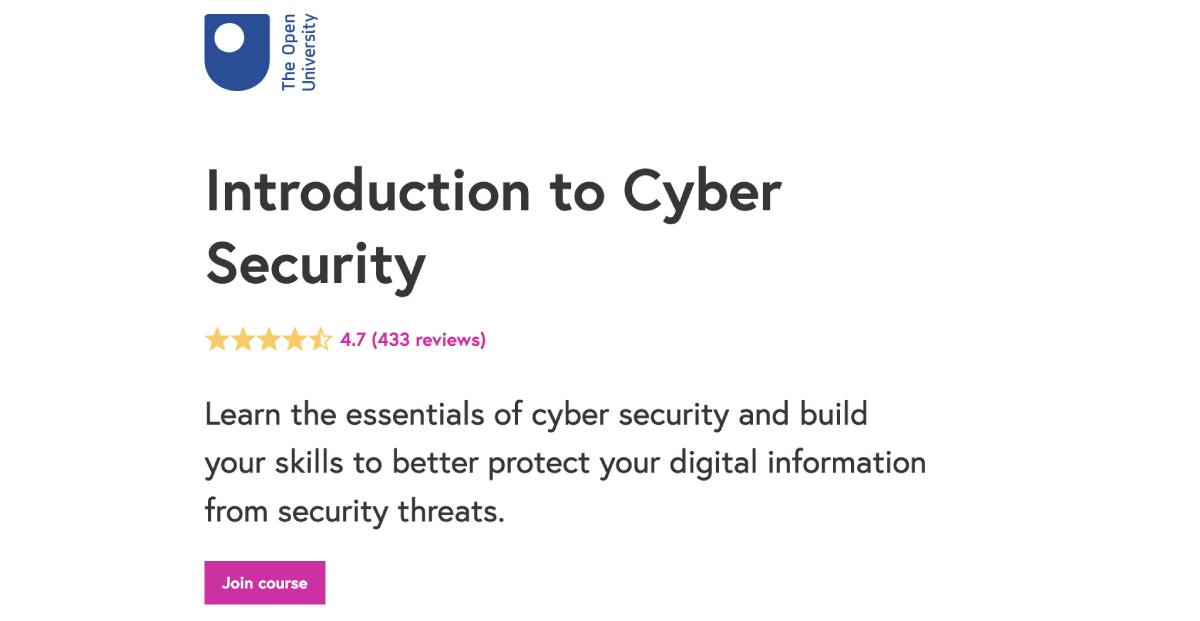
Rating
FutureLearn: 4.7 (based on 433 ratings on the course website)
CareerKarma: 4.5
Class Central: 4.3
Average: 4.5/5
Overview
This online introductory program from FutureLearn explores network security and data protection through VPNs and firewalls. It gives insight into how to recognize cyber attacks and protect your systems using cryptography. The course spans over two months, during which you’ll learn about authentication processes, malware, cybersecurity laws, and risk analysis.
Best For
This course is a good fit for beginners and anyone who wants to test whether their fundamentals are still in place. You can start the course anytime and don’t need to spend more than 3-4 hours per week to finish it in time. The course has accreditation from the UK’s National Cybersecurity Program, The Institute of Information Security Professionals, and the National Cybersecurity Centre. This makes it ideal for anyone who wants to display cybersecurity certification from these organizations on their CV.
Coursera: IBM Cybersecurity Analyst Professional Certificate
Rating
4.6/5 (Coursera – based on 6,663 ratings)
Overview
This online professional certificate program from Coursera includes eight courses covering a wide range of specializations within cybersecurity. Beyond introductory concepts, this course covers the many cybersecurity roles in an organization and the cybersecurity tools one needs to thrive in the field. It also covers the nuances of penetration testing and cyber threat intelligence.
You will also get a chance to complete a capstone project and a certification exam indicating that you are now trained to work as a cybersecurity analyst. The Breach Response case study is a part of the capstone project. It requires you to peruse cybersecurity stories that made the front page for your analysis, and your peers will evaluate your final work.
Best For
This bundle of courses is ideal for those wanting to put IBM on their resume, of course. You will also get the opportunity to test what you learned through a project and assessment backed by IBM, which is not something that most self-paced online cybersecurity courses offer.
Fullstack Academy: Cybersecurity Analytics Bootcamp

Rating
CareerKarma: 4.5
Course Report: 4.86
SwitchUp: 4.86
Average: 4.74
Overview
With full-time (13 weeks) and part-time (26 weeks) options, Fullstack Academy’s bootcamp is in-person in New York. These programs run in batches starting in August and October. You must go through an application process that includes an open-book logic assessment. The full-time course has Monday to Friday classes that run until 6 pm. The part-time classes are held thrice a week across morning and evening time slots.
As part of the bootcamp, you also get career guidance. They will teach you how to create an awesome cybersecurity resume. You will also get cover letter drafting sessions, Linkedin profile assistance, and thorough training with mentors running through interview questions and answers with you. By the end of this bootcamp, you will qualify for entry-level roles like cyber threat analyst, information security analyst, and other cybersecurity analyst roles (learn how to become a cybersecurity analyst here).
Best For
Young professionals with flexible timings or students on break who can commit their weekdays to the bootcamp. This is an intensive bootcamp. It’s ideal for those willing to make a heavy financial and time investment.
The University of Maryland on Coursera: Cybersecurity Specialization
Rating
4.6/5 (Coursera – based on 4053 ratings)
Overview
This Cybersecurity Specialization Course from the University of Maryland teaches the nuances of secure systems. This includes software security, cryptography, hardware security, and the art of mastering human-friendly security design. Four professors teach this course, including the Maryland Cybersecurity Center director. This bundle of courses will take about 6-8 months to complete. The capstone project involves building a software system and trying to find vulnerabilities in the designs created by other students.
Best For
Those with an intermediate level of knowledge in cybersecurity systems will benefit immediately from the course. Beginners may have to take some introductory courses before starting this one. This specialization is ideal for anyone looking to build expertise in security systems at a flexible pace.
How Do You Choose a Cybersecurity Course?
Penning down your priorities as per different categories will help you filter your options. Here are some factors to keep in mind:
Learning Goals
Before going through course listings, it is vital to understand why you want to take up the course. What is your motivation, and what are your learning goals? Is there a specific sub-field you are interested in? Or is there a particular company that you want to work for? If you already have adequate background in cybersecurity, your learning goal could be to refresh your knowledge before you jump into the job search process. If you are new to the industry, your learning goal should be to master the fundamental concepts and to get into cybersecurity regardless of your background.
Syllabus
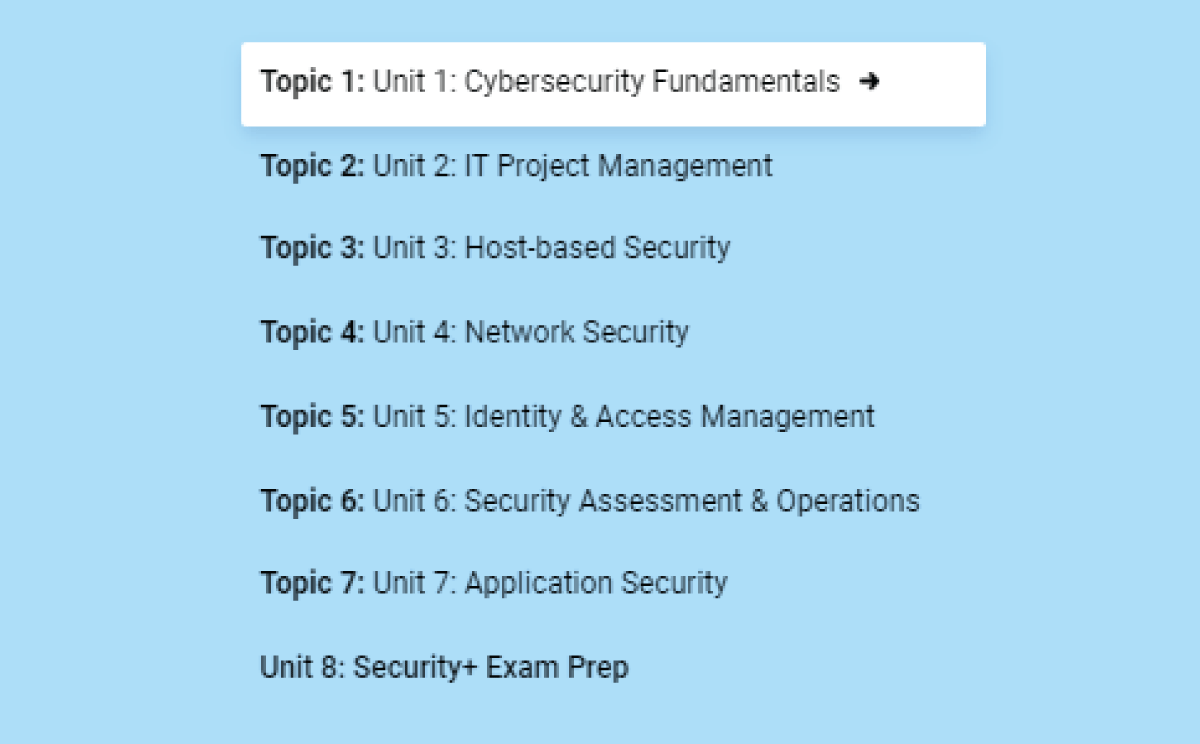
If you are a beginner, go for a course emphasizing the basics before diving into a specialization. If you already know which area you eventually see yourself working in, check whether the syllabus covers advanced topics on that topic or is limited to the basics.
Instructors’ Expertise
Dig further into the profiles of the instructors listed for each course. Go through their LinkedIn if possible. If you are a beginner, you might want to pick a course with an instructor with specific teaching experience in addition to practical experience. Industry experts who haven’t taught before might not be the best fit for some students. Think about your learning style for a few minutes, and pick accordingly.
Duration and Schedule
These two factors will make or break the chances of successful completion. You may be the most dedicated student, but if the schedule doesn’t match the hours per week you can dedicate to the course, you will be left playing catch up. If you are pursuing a full-time job and can only commit to the weekend, pick a course with pre-recorded sessions. As for duration, consider your immediate and long-term goals to gauge whether you need to finish the course as soon as possible or if you prefer a slower pace. Online cybersecurity courses are flexible to accommodate students, working professionals, and others with a full schedule. Take advantage of that.
Price
Courses are financial investments from which you expect a return, either in terms of the level of knowledge they impart or a job guarantee. Evaluate whether the price of the course seems worth the benefits they promise and if the level they teach can fetch you a job in the salary range you are aiming for. Both these factors combined will help you understand if the course’s price is commensurate to your expectations.
Reviews
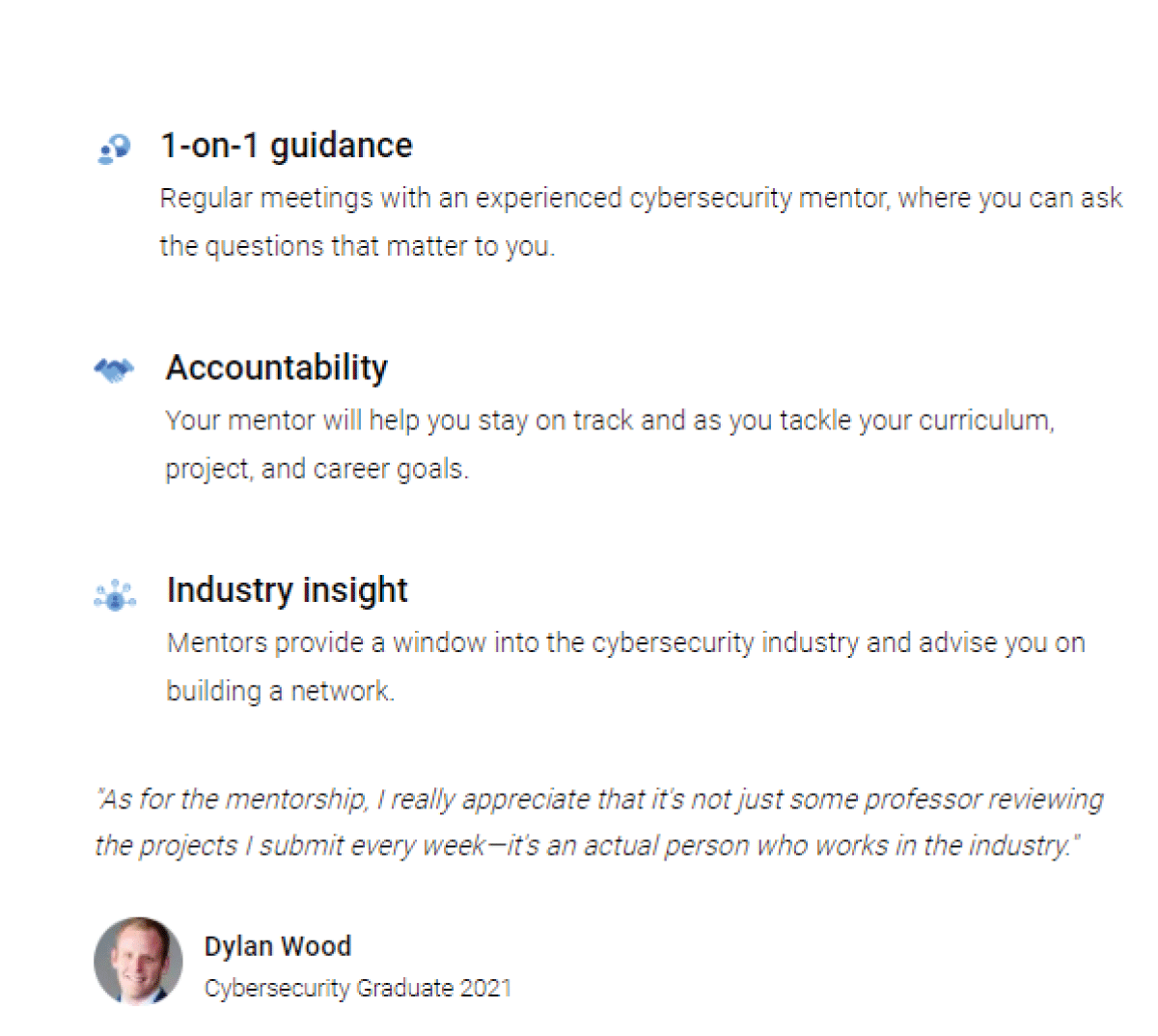
Go beyond the reviews posted on the course creator’s website. Skim through online forums like Reddit with threads discussing the best cybersecurity courses. Ask people what made them choose a particular course over the others and whether that differentiating factor shines through in the course. When you ask specific questions, you will get in-depth reviews that will help you make an informed decision.
Making the Most Out of a Cybersecurity Course
These questions will be valuable markers in helping you make the most out of your cybersecurity course experience:
What Should You Expect To Learn From a Cybersecurity Course?
The six best cybersecurity courses we listed above cover diverse specializations and practical skills. All of them will cover the fundamentals of cybersecurity, including essential cybersecurity terms and answering the question “What is cybersecurity?” You will get to build your expertise in core areas like network security and understand the nuances of IT project management. Some courses will focus on cloud security as well. These courses allow access to the syllabus before signing up. Go through them to understand which technical/soft and advanced/basic concepts they cover.
What Does the Schedule Generally Look Like?
The cybersecurity courses will have varying schedules that fall into the following categories: part-time, full-time, live-streamed classes at fixed timings, or pre-recorded classes you can watch at your pace. If the course schedule has set class timings but these gel with your other commitments, you can consider it.
What’s the Best Way To Implement the Learnings?
The certificate will help open the doors to entry-level cybersecurity jobs. In the meantime, you can implement what you’ve learned by participating in competitions like the National Collegiate Cyber Defense Competition. You can also attend seminars and try to bag presentation opportunities. These will help you sharpen your skillset further. You will also get to forge meaningful connections. If you are unsure of how to implement all the knowledge you gained, reach out to your network to find a mentor. They can help you decide what kind of career in cybersecurity you can aim for.
FAQs About the Best Cybersecurity Courses for Beginners
We’ve got the answers to your most frequently asked questions.
Is Cybersecurity the Right Fit for Me?
It depends. Cybersecurity is a growing industry with potential for those willing to put in the work. It is lucrative, and thus many young professionals looking to pivot want to give this field a try. The only way you can know if it is the right fit for you is by experimenting with at least a couple of aspects of the industry.
Consider engaging online with cybersecurity professionals with diverse profiles. If you see yourself enjoying the subject, you can try watching cybersecurity TED talks for inspiration and motivation. Once you are ready to delve further, you can choose a course or bootcamp.
Reading about a day in the life of an SOC analyst will give you an idea of what to expect.
Is Cybersecurity Hard To Learn?
The evolving nature of the industry makes the field of cybersecurity challenging to work in. You need to upskill frequently and stay abreast of the best practices as well as technical and regulatory developments within the industry to stay relevant.
The range of tools a cybersecurity professional needs to be proficient in presents a steep learning curve. Because of this, some consider cybersecurity hard to learn. But these challenges can be exciting. Even though it’s a lot of work, the average cybersecurity analyst’s salary and range of work opportunities make the effort worthwhile.
Should I Take a Cybersecurity Course or Bootcamp?
The main difference between a cybersecurity course and bootcamp is that the latter will be more intensive and immersive. A bootcamp comes with benefits like cybersecurity career guidance, mentorship, collaborative project components, and so on. Certificate courses usually do not require any interaction with industry experts and rely on the honor system to complete assignments.
Such courses are for those who are not yet serious about cybersecurity as a career option but still wish to experiment. A course is for beginners who are testing the waters. A bootcamp will prepare you for a career in the chosen field of cybersecurity, even if you are a beginner. Depending on your learning goals, either can be a good fit.
What Skills Are Essential for a Career in Cybersecurity?
You will need a combination of soft and hard skills to flourish in cybersecurity career paths. Soft skills such as communication, problem-solving and analysis, creative and critical thinking, and a deep aptitude for learning are essential. As for technical skills, it’s critical to understand cybersecurity-relevant programming languages, operating systems, peripheral coding techniques, artificial intelligence, and cyber risks. You will also need a strong base in security information and event management (SIEM).
Since you’re here…Interested in a career in cybersecurity? With or Cybersecurity Bootcamp, you’ll get a job in the industry, or we’ll return your tuition money. Test your skills with our free cybersecurity learning path, and check out our student reviews. We’re a safe bet. 🔒😉





